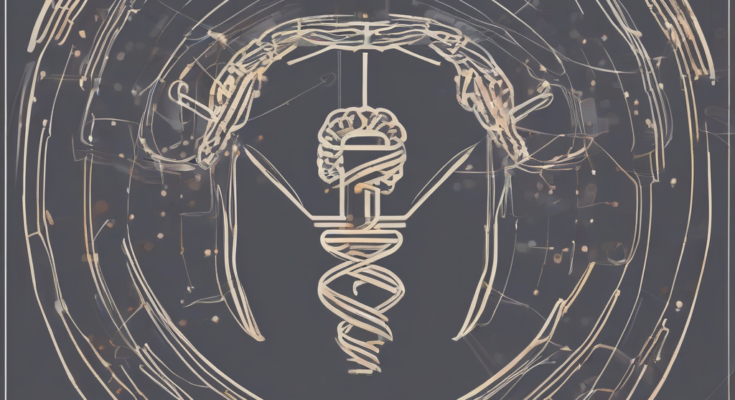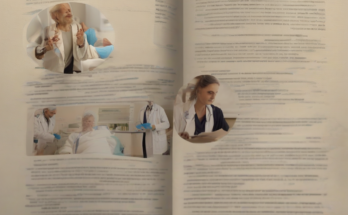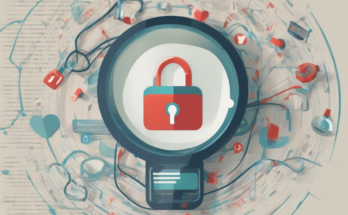Revolutionizing Healthcare: A Deep Dive into Healthcare Application Development
The healthcare industry is undergoing a rapid transformation, driven by technological advancements and a growing demand for accessible, efficient, and patient-centered care. At the heart of this revolution lies healthcare application development, a field that is constantly evolving to meet the diverse needs of patients, providers, and administrators.
The Expanding Landscape of Healthcare Applications
Healthcare applications encompass a broad spectrum of software solutions designed to improve various aspects of the healthcare ecosystem. These applications can be broadly categorized into several key areas:
- Electronic Health Records (EHR) and Practice Management Systems (PMS): These are foundational applications that digitally store and manage patient medical information, scheduling, billing, and other administrative tasks. The development of robust and interoperable EHR/PMS systems is crucial for improving care coordination and reducing medical errors.
- Telemedicine and Remote Patient Monitoring (RPM): Telemedicine applications facilitate virtual consultations, remote diagnosis, and treatment monitoring, expanding access to care, particularly for patients in remote areas or with mobility limitations. RPM applications utilize wearable sensors and other technologies to collect vital signs and other health data remotely, allowing for proactive interventions and improved patient outcomes.
- Mobile Health (mHealth) Applications: mHealth apps offer a wide range of functionalities, including medication reminders, appointment scheduling, health tracking, and educational resources. These applications empower patients to take a more active role in managing their health and improve adherence to treatment plans.
- Medical Imaging and Diagnostics Applications: These applications utilize advanced image processing techniques and artificial intelligence (AI) to assist in the diagnosis and treatment of various medical conditions. They can improve the accuracy and speed of diagnosis, leading to more timely interventions and better patient outcomes.
- Clinical Decision Support Systems (CDSS): CDSS applications provide healthcare professionals with evidence-based recommendations and alerts to aid in clinical decision-making. They can help reduce medical errors, improve the quality of care, and enhance patient safety.
- Health Information Exchanges (HIE): HIEs facilitate the secure exchange of electronic health information among different healthcare providers, enabling better care coordination and reducing redundancies.
- Pharmacy Management Systems: These systems streamline the processes involved in managing medication inventory, dispensing prescriptions, and ensuring medication safety.
- Research and Clinical Trials Management Systems: These applications support the efficient management and analysis of data collected in clinical research studies.
Key Technologies in Healthcare Application Development
The development of sophisticated healthcare applications requires a combination of advanced technologies. These include:
- Cloud Computing: Cloud platforms provide scalable and cost-effective infrastructure for hosting healthcare applications and storing large volumes of patient data.
- Artificial Intelligence (AI) and Machine Learning (ML): AI and ML algorithms are being increasingly used in healthcare applications to analyze medical images, predict patient outcomes, and personalize treatment plans.
- Big Data Analytics: Analyzing large datasets of patient information can reveal valuable insights that can improve healthcare outcomes and efficiency.
- Internet of Medical Things (IoMT): IoMT devices, such as wearable sensors and connected medical equipment, generate vast amounts of data that can be used to monitor patients remotely and improve healthcare delivery.
- Blockchain Technology: Blockchain can be used to enhance the security and privacy of patient data and streamline the exchange of health information.
- Natural Language Processing (NLP): NLP allows applications to understand and process human language, enabling features such as voice-activated medical records and automated report generation.
- Augmented Reality (AR) and Virtual Reality (VR): AR and VR technologies are being used in medical training, surgical planning, and patient rehabilitation.
Challenges in Healthcare Application Development
Despite the significant potential of healthcare applications, several challenges need to be addressed to ensure their successful implementation and adoption:
- Data Security and Privacy: Protecting patient health information is paramount. Healthcare applications must adhere to strict data privacy regulations and employ robust security measures to prevent data breaches.
- Interoperability: Different healthcare systems often use incompatible technologies, hindering the seamless exchange of information. Developing interoperable systems is crucial for improving care coordination.
- Regulatory Compliance: Healthcare applications must comply with a complex web of regulations, including HIPAA in the United States and GDPR in Europe. Meeting these regulatory requirements can be a significant challenge.
- User Experience (UX): Healthcare applications must be user-friendly and intuitive for both patients and healthcare professionals. Poor UX can lead to low adoption rates and decreased effectiveness.
- Cost and Integration: Implementing and integrating new healthcare applications can be expensive and time-consuming. Careful planning and resource allocation are essential for successful implementation.
- Scalability and Maintainability: Healthcare applications must be able to handle increasing volumes of data and users as they grow. They also need to be easily maintainable and upgradable.
- Ethical Considerations: The use of AI and other advanced technologies in healthcare raises ethical concerns, such as bias in algorithms and the impact on the doctor-patient relationship. These issues must be carefully considered during the development process.
The Future of Healthcare Application Development
The future of healthcare application development is bright, with ongoing advancements in technology promising to further revolutionize the healthcare industry. We can expect to see:
- Increased adoption of AI and ML: AI and ML will play an increasingly important role in diagnostics, treatment planning, and personalized medicine.
- Greater emphasis on patient engagement: Applications will be designed to empower patients to take a more active role in managing their health.
- Improved interoperability: Efforts to standardize healthcare data and improve interoperability will continue to accelerate.
- Expansion of telehealth and remote patient monitoring: Telehealth will become increasingly integrated into healthcare delivery, expanding access to care and improving patient outcomes.
- Growing use of wearable sensors and IoMT devices: Wearable sensors will generate increasingly rich datasets that can be used to personalize treatment and improve preventative care.
- Enhanced data security and privacy: Robust security measures will be essential to protect patient data in an increasingly connected healthcare environment.
- Focus on personalized medicine: Applications will increasingly be tailored to individual patient needs and preferences.
- Increased use of blockchain technology: Blockchain will play a greater role in securing and managing patient health information.
Conclusion (Placeholder – excluded as per instructions)


